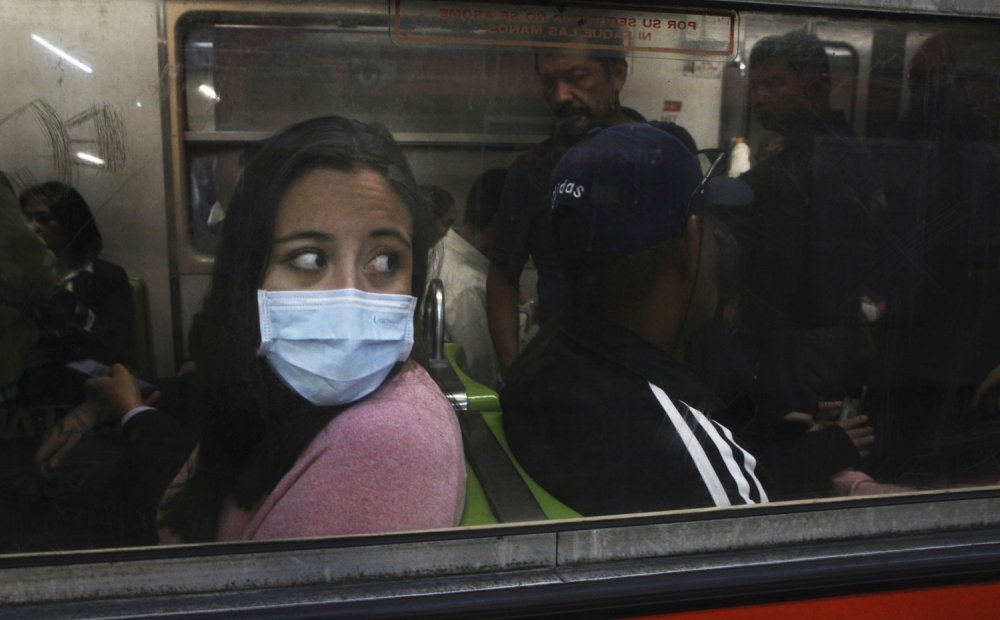Ground Truth Briefing | Evaluating the Impact of COVID-19 in Mexico

On March 11, 2020, the WHO declared the COVID-19 outbreak a pandemic. On March 19, Mexico's Undersecretary of Health Dr. Hugo Lopez-Gatell confirmed there are 118 positive cases of COVID-19 in Mexico, and the country has just reported its first COVID-19 related death. While the virus has yet to hit the country in large numbers, some suggest more stringent precautions are needed.
However, free testing is limited, and social distancing in Mexico could prove to be complicated. Additionally, some worry that the Mexican public health system appears to be poorly prepared. The country has already seen shortages of medicine and basic supplies at Mexican hospitals, as well as problems in the government procurement process for medication. The government and President Lopez Obrador seem to be downplaying the severity of the crisis, as widespread panic and closures could further damage Mexico's economic performance.
In this briefing, experts on the ground discuss the outbreak in Mexico and the country's public health system, the possible impact on Mexico's economy, and public sentiment in Mexico surrounding the government's response to COVID-19.
Selected Quotes
Luis de la Calle
“This is probably the most significant crisis Mexico has faced in the last decade.”
“The government is in a very difficult position, of course, in the sense that people think they have to choose between economics and health. And I think that, in the end, is a false choice. If we choose economics and not health, we pay a dear price on the health side, and we pay a dear price on the economics side. It’s not about choosing between one or two, but actually having both of them as priorities.”
“On the health side, we need to prepare Mexicans for the incoming crisis and rely on households as the main line of defense. The vast majority of Mexicans will be treated, will be covered, and will be isolated in their own homes, and that is the place to treat them. The hospital system will not withstand…they will be overwhelmed with a large number of patients coming to the health system.”
“The problem is these three forces—the supply shock, the demand shock, and the uncertainty shock—feed into each other, and make the slow down a recession and potentially…a depression.”
“This idea that this is a V-shaped recession is not true. This ought to be a U-recession or a prolonged U-recession. Once you have closed things down—facilities, supply chains—it takes a long time to recover the strength of the consumption and investment and get the machinery going.”
“We need to marshal our significant industrial capacity. Mexico has become in the last 20 years one of the main suppliers for medical devices to North America. So, the capacity exists, so we should exploit it.”
Jorge Buendía
“The first thing to notice is that this health crisis finds the president on the defensive side. His approval levels have been declining for about one month. He used to be close to about 70% in February, and nowadays, the [polls] find him at about 58% approval level. This is his lowest approval level since he started his government.”
“Obviously, this will affect his [Mexico’s President) approval level on the one hand, but will also affect the position of his party, as we see next year is the midterm elections. And this would take place in an economy that will be in a very bad shape with an exchange rate at a very high level.”
“One main consequence of this coronavirus crisis is that the Mexican political opposition will begin to organize. We had seen in the past months that there was not an opposition to the president, and I think this is going to change.”
“I think that local governments right now have been beginning to take the lead, and I think this is most important because for the public data that we have seen in other countries, what we have are original clusters of coronavirus. In particular, the Mexican data show that…Jalisco and Mexico City are the main areas or the main regions that have been affected, and we have seen in those cases that the local government are right now the main organizers of the public strategy to combat the coronavirus.”
Eduardo Gonzalez-Pier
“Some points of why Mexico can be a bit different from the European examples are three things: one of them is the demographic characteristics of Mexico. Keep in mind Mexico has a younger population than Italy, Spain and Asian countries. Less percentage of the population is considered at risk. Second, the population density is also lower, which will help in terms of transmission. On the negative side, people have chronic diseases that work against us.”
“A lot of it depends on the success of the health systems in terms of containing and especially flattening the curve. That means spreading more cases over time, not necessarily reducing the total number of cases, but to allow for cases to be treated by the healthcare system.
“You have to keep in mind that Mexico is facing this crisis with a very weak, understaffed, underequipped, healthcare system. Now this means that flattening the curve will help, but the system will enter into an overload much faster than it has happened in other OECD and nation countries.”
“Already we have been seeing a set of contradictory messages from authorities…Sometimes the president has…minimized, underplayed the crisis. In other cases we have these very strict measures like last night with the closure of the federal government. So, I think what this uncertainty in the messages are doing is creating anxiety, and this anxiousness is also feeding into the problem of the crisis.”
“I think we have to be clear that we are entering very uncertain, uncharted territory here. We know there are some countries ahead of the curve, but I don’t think there is a clear message or clear understanding of when this is going to peak.”
“Flattening the curve will reduce GDP. And what people, I think, are not taking into consideration, especially policymakers, is that the effect on health and the economy is bidirectional, meaning that health policies will affect GDP, but it is also important to keep in mind that a falling GDP will damage health.”
Speakers
Managing Director, De La Calle, Madrazo & Mancera and former Undersecretary, Ministry of Economy, Mexico

Director, Buendía & Márquez

Global Fellow, Wilson Center; Senior Technical Director; Palladium
Moderator

Hosted By

Mexico Institute
The Mexico Institute seeks to improve understanding, communication, and cooperation between Mexico and the United States by promoting original research, encouraging public discussion, and proposing policy options for enhancing the bilateral relationship. A binational Advisory Board, chaired by Luis Téllez and Earl Anthony Wayne, oversees the work of the Mexico Institute. Read more


